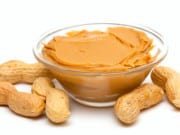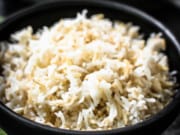
Article Courtesy: Dr. Stephen Wangen, IBS Treatment Center
You may have heard that probiotics might help with your IBS symptoms. But do you need them? Which ones? How many?
Probiotics, or supplements containing strains of good bacteria that normally live in the intestinal tract, are frequently taken by individuals suffering from digestive upset in an attempt to improve their symptoms.
In our practice, it is common to hear from patients who have tried probiotics that the supplements offered no improvement or even made them feel worse. The following points should help to explain why a negative reaction to probiotics is not necessarily surprising:
#1 Many brands of probiotics contain low numbers of organisms, which essentially translates to a low dose of good bacteria. Prescription probiotics can have numbers as low as 1 billion organisms per dose (which sounds like an awful lot, but is actually far less than what research finds to be a therapeutic dose). We commonly find that for some patients, doses as high as 25-50 billion organisms per day can effectively address the causes of IBS.
#2 Most probiotics are grown on dairy, which can be very problematic for patients who suffer from a dairy allergy, a common cause of IBS symptoms. In treating IBS, it is essential to identify any underlying food allergies and intolerances prior to starting treatment with probiotics, as taking a supplement that contains foods that your system reacts to negatively can cause more harm than good. Unique and specialized food allergy testing helps our physicians identify negative reactions to specific foods in patients suffering from IBS.
#3 The strains of good bacteria found in the supplements may not match the strains that your intestines need to reach healthy and appropriate levels. By identifying the microbial ratios in the gut via a DNA stool analysis test, specific levels of different strains of good bacteria can be measured and identified as deficient. By replacing specific bacterial strains (instead of guessing), healthy levels of good gut bugs can be replenished to maintain a healthier intestinal environment.
#4 Some strains of probiotics are much more anti-inflammatory than others. These strains help to reduce distress in your intestinal immune system, while others may have a potentially pro-inflammatory effect or no effect at all. Research shows that certain strains of good intestinal bacteria are exceptionally strong regulators of intestinal inflammation. Having high enough levels of these bacteria can help to moderate immune reactions that can cause symptoms of IBS.
Effectively utilizing probiotics is key to properly treating IBS. This is a science. Please contact our clinic if you have questions about probiotics or would like to schedule an appointment with one of our physicians.







Let Us Know What You Think